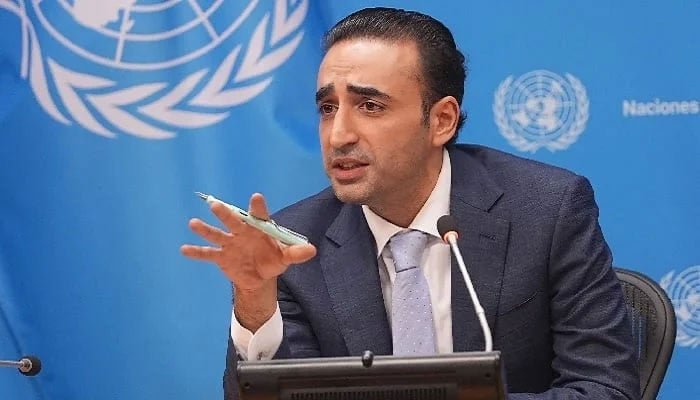During an address to a European think tank in Brussels on Friday, former Pakistani Foreign Minister and PPP Chairman Bilawal Bhutto-Zardari stated that India has yet to provide any evidence linking Pakistan to the Pahalgam attack, despite Pakistan’s offer to assist in an investigation.
Bhutto-Zardari’s comments came as part of a larger effort by a Pakistani delegation to counter what they believe is Indian propaganda following recent tensions between the two countries. The delegation, appointed by Prime Minister Shehbaz Sharif, had previously visited Washington, New York, and London before arriving in Brussels, where they were welcomed by Pakistan’s Ambassador to the EU, Belgium, and Luxembourg, Rahim Hayat Qureshi.
The delegation aims to present Pakistan’s perspective on the recent tensions with India and emphasize the need to resolve the Jammu and Kashmir issue according to UN Security Council resolutions and the wishes of the Kashmiri people.
Bhutto-Zardari criticized the Indian government for reacting with “unprovoked aggression” instead of pursuing diplomatic solutions. He emphasized that Pakistan offered its full cooperation in investigating the Pahalgam incident, but India chose to escalate the situation.
He also accused India of potentially “weaponizing environmental resources,” referencing concerns over water flow. While Pakistan has exercised restraint, Bhutto-Zardari warned that any further attempts to block water flow would force Pakistan to consider retaliatory measures, viewing the suspension of relevant treaties as a threat to regional peace.
He further underscored the importance of resolving the Kashmir dispute according to UNSC resolutions for ensuring regional stability and criticized Prime Minister Modi’s policies for undermining peace efforts. He also highlighted Pakistan’s sacrifices in the fight against terrorism and the ongoing cross-border threats it faces, particularly in light of the situation in Afghanistan.
Finally, Bhutto-Zardari addressed the escalating tensions in the Middle East, condemning Israel’s recent airstrikes on Iran and urging the international community to act quickly to prevent a full-scale war, emphasizing the potential global repercussions of instability in both South Asia and the Middle East.


